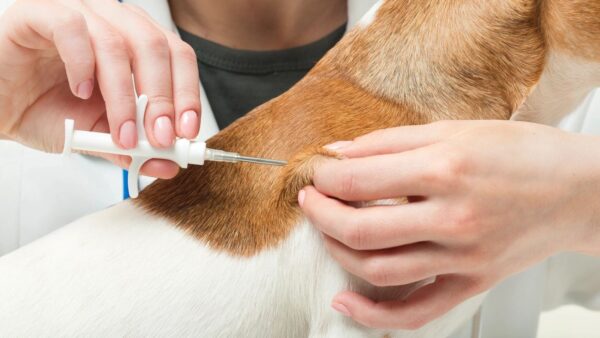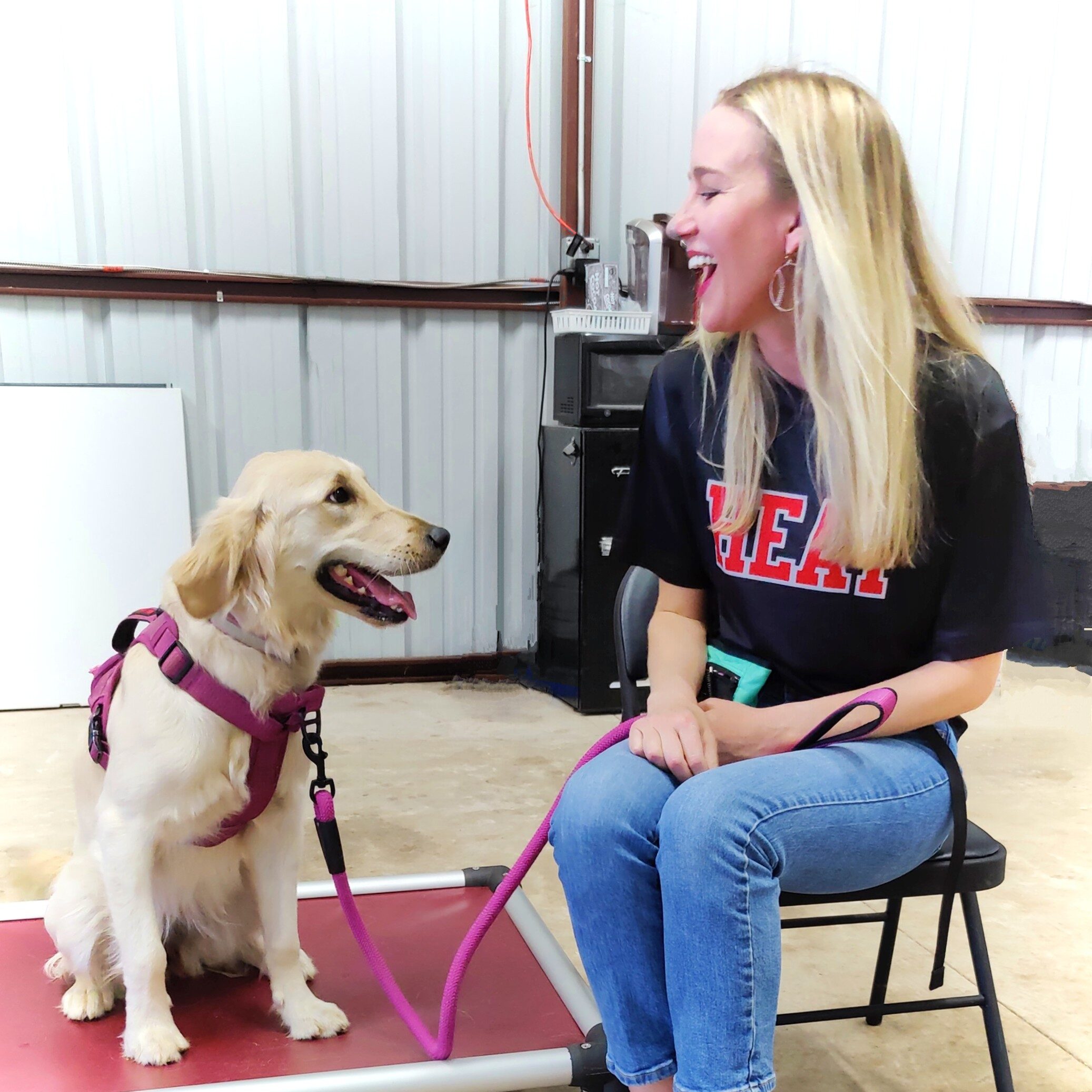Welcome to the last article in our series about questions you should ask your doggy daycare and boarding facility. If you missed the previous articles, you can find part 1 here, part 2 here, and part 3 here.
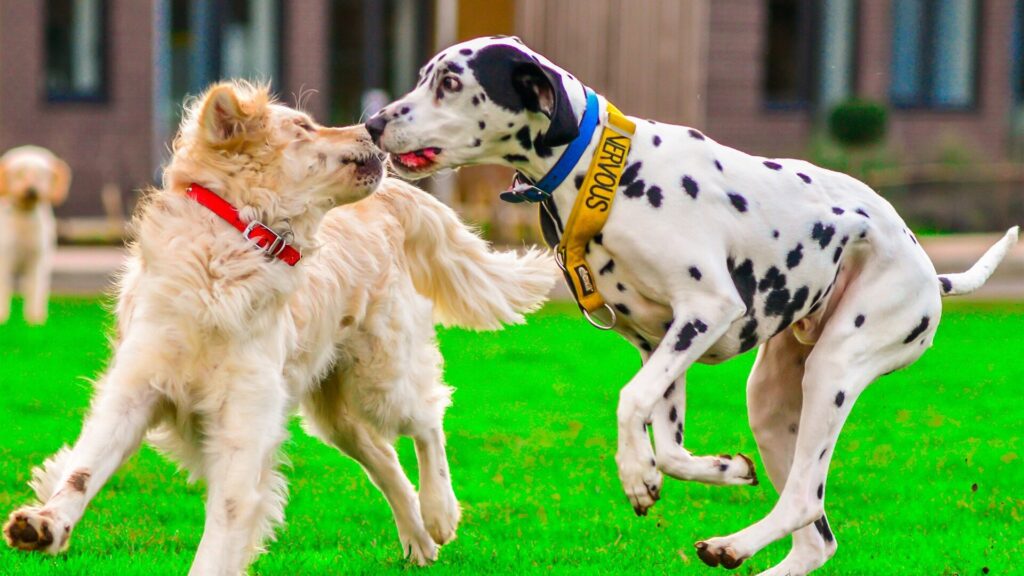
In today’s article, we’ll be focusing on policy questions. Doggy daycare policies are designed to keep your dog safe and make sure everyone has a good time. Knowing what policies are in place for the daycare and boarding facilities you’re choosing from can help you make informed decisions about the right place for your dog.
What vaccinations does the facility require for all dogs?
It is standard practice for facilities to require rabies, distemper parvovirus (DAPP/DHPP), leptospirosis, and bordetella vaccines for all dogs on the premises. If you ask about vaccine requirements and do not hear all of these listed, take a deeper look into why the facility may not require them and consult your trusted veterinary professional for advice. In all my time of working at doggy daycares, these have been standard requirements.
But what are these vaccines and why does your dog need them for daycare? Rabies is a fairly common vaccine given to dogs these days, but many people trust their vet without asking why other vaccines may be needed. This can lead people to being ill-informed about why vaccines are required for certain spaces. And if you don’t know why you need them, you could be convinced by a poorly set up doggy daycare that your dog doesn’t need them to be on site. This can make the spread of these diseases more prevalent in the communities your dog calls home.
The distemper parvovirus (DAPP/DHPP) vaccine is usually several preventatives rolled up into one. Distemper1 is a viral infection that causes nasal discharge, coughing, and eventually leads to seizures and neurological issues. Even dogs who recover from distemper due to veterinary intervention often have permanent nervous system damage. While this disease is not as common as it used to be, it is still around due to many wildlife species being carriers of the disease, such as racoons. With how contagious this disease is, it makes sense that doggy daycare and boarding facilities would want to take measures to mitigate this risk.
Parvovirus2, or parvo, is often talked about when it comes to vaccines since it is fatal to puppies even when treatment has begun. Onset of this disease is quick and most deaths occur within 48 to 72 hours following the onset of clinical signs. To top it all off, this disease is not only highly contagious, but resistant to heat, cold, humidity, and drying. Parvo is known to survive in environments for long periods of time and trace amounts are all that’s needed to contaminate an area. Clothing, human skin, kennels, the ground, leashes, dog bowls, or any other surface can become contaminated and transfer the virus. If a doggy daycare or boarding facility does not require this vaccine, my professional advice is to walk away and not go back.
Leptospirosis,3 or lepto, is a bacterial infection commonly caused by dogs coming into contact with infected water or soil. Many cases of lepto happen when a dog drinks from contaminated puddles and is most often transferred by infected wildlife through urine. Dogs can get it if they have their mucus membranes or an open wound on their skin come into contact with a contaminated surface, most often the ground or water.
To boot, this infection is zoonotic, and while it is more likely you’ll catch it by doing recreational activities in water, it is still possible to get it from your canine companion. In humans, this disease can cause flu-like symptoms and liver or kidney disease. In dogs, the list of symptoms is long, but the greatest concern is that even if treated early and aggressively by your veterinarian, there is still a risk of permanent residual kidney or liver damage.
The bordetella4 vaccine helps protect against a specific bacteria that causes respiratory infection. Many people know this as the kennel cough vaccine, but kennel cough is a catch-all term for a respiratory infection that is caused by different bacteria and viruses. Usually when a dog has kennel cough, it is due to many viruses and bacteria acting together to make the dog ill. Most notably, the more severe signs of kennel cough are due to the bacteria that the bordetella vaccine fights against, Bordetella bronchiseptica. While getting this vaccine will not prevent your dog from getting kennel cough, it should keep your dog from getting a severe case. The adenovirus and parainfluenza vaccines that are often included in the distemper parvo vaccine also ward against kennel cough.
Kennel cough’s most notable symptom is a honking cough that usually produces frothy substance. Due to dogs being contagious before showing symptoms, this illness is on the radar of many doggy daycares. The spread of the disease quickens when dogs are in close proximity and share communal spaces and items. Many of the organisms responsible for kennel cough can survive for weeks.
The last vaccine we will mention here is one that has come to more recent attention: canine flu. Not all doggy daycares and boarding facilities require this vaccine, and it is not standard practice across the board. When it comes to canine flu, we recommend talking to your trusted veterinarian for answers about your particular dog. If your dog is at high risk of getting the flu or potentially receiving long term damage or death from the illness (or bringing it home to a dog who will), it might be a good idea to not only vaccinate against it, but look into a facility that requires it to mitigate the risk to your own dog.
In the Oklahoma City area, many outbreaks have been seen for canine flu, and this factor may influence your vet’s recommendation for you as well. Some parts of the world do not see many cases of canine flu. If you are choosing to travel with your dog, make sure to let your veterinarian know when you ask if the canine flu vaccine is right for your particular dog. For more information on the canine flu, you can go here to read more.
What is the policy on spay and neuter?
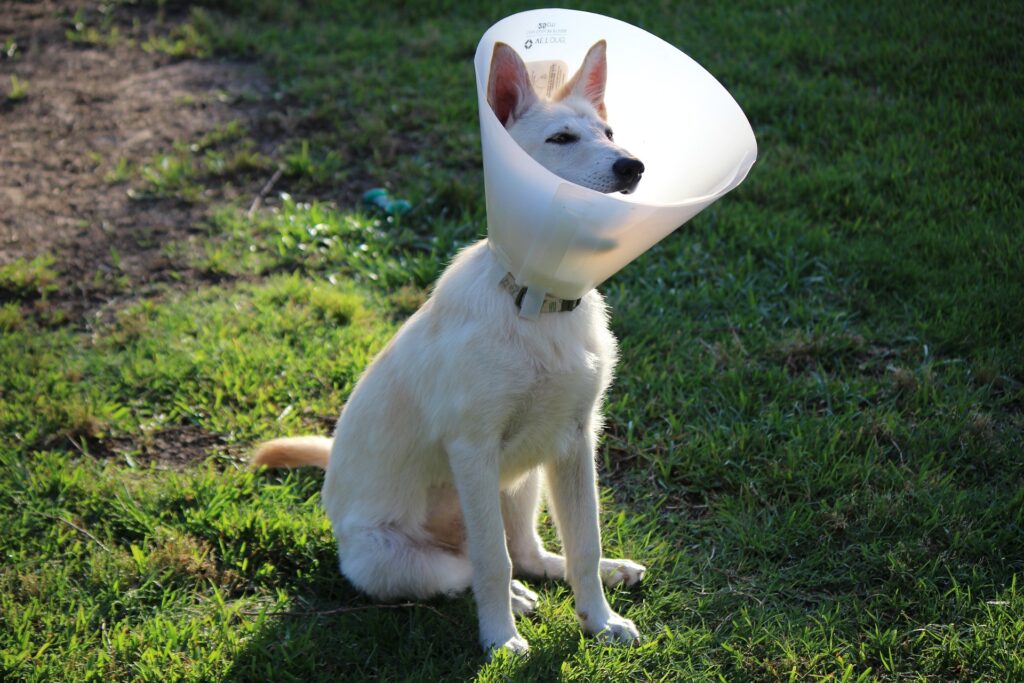
Many people are choosing to wait to spay or neuter their dogs or keep their dogs intact these days. The debate on when or if to spay and neuter is still an ongoing one as more research develops on the subject. Many people make these decisions alongside their trusted veterinary partners to do what is best for their dogs.
That being said, it is important to consider the policies on spay and neuter at doggy daycare and boarding facilities. Many daycares require spay and neuter of all dogs on the premises by a certain age. If your puppy hits that age and you choose to wait, you may be waiting for daycare, looking into other services like dog walking, or looking for a different facility in the meantime. Knowing what that age is up front allows you to plan ahead.
It is rare for a doggy daycare to allow unaltered adult dogs, but they do exist. If your vet has advised you to wait or forgo spay or neuter, make sure to take this into consideration while shopping around.
Even if your dog is spayed or neutered, it is helpful to know what the policy is on intact dogs being in play groups or on the premises. Dogs who are unaltered can sometimes act differently than dogs who are and they can have interesting interactions together.
Facilities who allow unaltered dogs have certain restrictions in place. For example, some facilities will allow unaltered male or female dogs to be on site, but only have individual play time with people. Other places will allow intact dogs to play within a group of dogs but have restrictions on bringing females who are in heat. Heat cycles can last up to a month, and this could be a factor to consider if daycare is not an option for your female dog during a heat cycle. Other places will allow females in heat on site but restrict them from playing with other dogs during their stay.
And as with anything, looking at risk is important. If dogs who are intact are allowed on premises, what actions are taken to prevent surprise pregnancies? Even if great action is taken to mitigate this risk, the risk can never be zero. Dogs are creative.
What age of dogs are allowed on the premises?
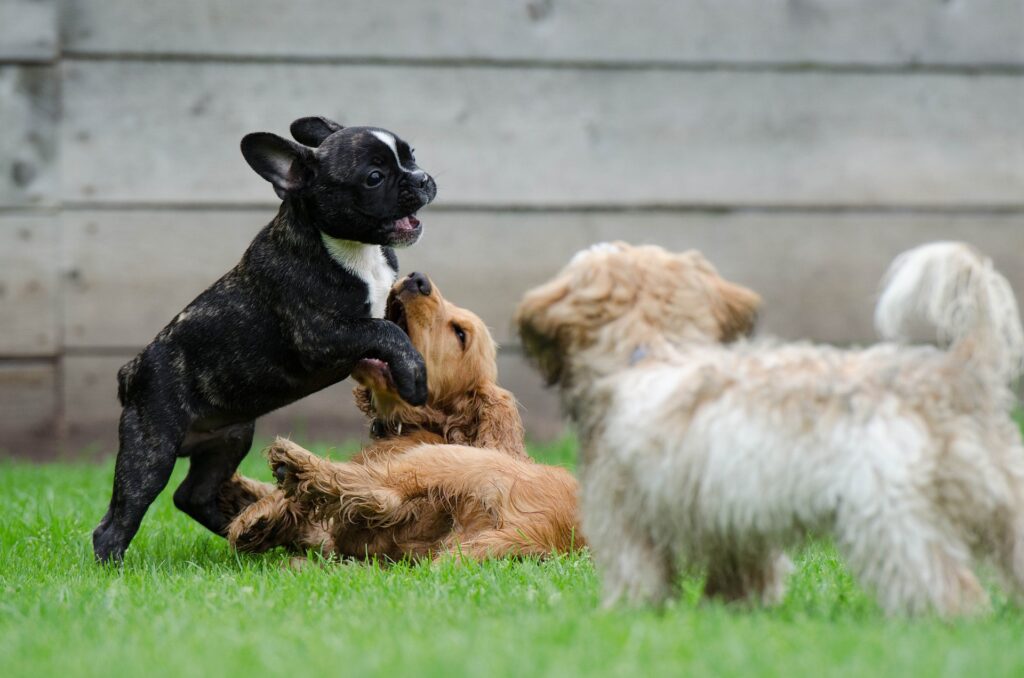
Age requirements usually have a minimum when it comes to daycare. Most places only allow dogs who have received their final puppy vaccines to come and play. This usually happens around four months old. To this day, I have never worked in a facility that allowed dogs still going through their puppy vaccines to be on grounds since the risk is so high.
That being said, not every place is the same. Some allow puppies still going through their rounds of boosters to be on the premises. To mitigate risk, these places must have a strict vaccine policy to protect their puppy clients. Most doggy daycares require at least two rounds of DAPP/DHPP before coming to play, and require puppies to keep up on their vaccination due dates in order to play. Other places may have specific times and days set up for puppies to play and may mitigate risk by following certain sanitizing procedures before and after the puppies arrive, as well as procedures for when to carry puppies and when to let them walk on their own to prevent the spread of disease.
A lot of this conversation gets really sticky. Dogs who are not fully vaccinated run the risk of picking up deadly diseases. Many places have concerns about the liability involved and want to avoid the risk to their clients. People don’t get into the doggy daycare industry by not loving dogs.
However, socialization at an early age can be extremely helpful in bringing up a well rounded puppy. While daycare should not be the only way you socialize your dog, you may lack some resources to find other puppies and safe dogs for your puppy to play with when appropriate.
There are other safe ways to socialize your puppy around other dogs without taking them to daycare if you have concerns about vaccine status. We have helped many people socialize their dogs around other dogs in safe ways that don’t involve daycare at too young an age. So if you have concerns about taking your puppy to daycare because of vaccines, talk to your trainer about good ways to socialize a puppy to put your mind at ease, and partner with your trusted veterinarian to make sure you are doing what’s best for your puppy’s health.
For more information on puppy socialization, you can read more from AVMA here.
What is the protocol for emergencies? (Tornado, Fire, Etc.?)

In our last article where we talked about facility questions, we mentioned having alarms in place for emergencies, such as smoke alarms. This follow up question asks how the staff reacts to emergencies. It’s important to remember that these emergencies are unlikely to occur, but knowing the protocols can give you peace of mind.
In the case of Oklahoma, tornadoes should be asked about. Do the dogs stay in their kennel areas? Do they go to a certain location in the building that is safer? Look around the facility and decide if you would be comfortable with the structures and the procedures.
Fire safety is also important. Think about prevention as well as procedure. Good protocols and procedures could look like having staff trained on how to use a fire extinguisher and having them accessible. In the case that a fire gets too big for a civilian to fight, what is the procedure for getting the dogs out? Does the facility use the outdoor dog yards to evacuate dogs? Do they bring dogs out front and have a system to contain them safely?
While not a doggy daycare, I have personally talked to an employee at a vet office who told me about their agreement with the local car wash business that was their neighbor. Their procedure was to evacuate dogs and use tethers on hard points in the cement to keep the dogs a safe distance apart during the commotion.
Fire isn’t the only reason to know evacuation protocols. Other issues can arise that may cause a need for an evacuation plan. It’s best to be prepared.
What is the staff training on first aid and CPR?
Accidents happen. While no one sends their dog off to doggy daycare to get hurt, sometimes dogs are clumsy and may hurt themselves unexpectedly. When looking at places, ask about first aid training for minor injuries. Some places require that employees have this training before being hired on and others require this training as a part of the onboarding process for employees.
The level of training is something you should be comfortable with. While these staff members are not veterinarians, it is helpful to know that the staff can perform basic first aid like stopping a bleeding nail or cleaning out a cut or scrape.
In the case of more severe issues like CPR, consider what level of comfort you have with trained employees. Some places can afford to get a professional to come in with fake dogs to practice with on a regular basis to keep employees trained and practiced, or have a way to send new employees to do hands-on training. Other places only do video training for this.
I have seen places who did not require CPR training for hiring and did not provide it to all employees, but always had someone on site who knew how to help. I have seen other places that required video training first and then yearly would have their employees practice on fake dogs.
You can also ask if employees are trained on noticing signs of hypothermia and heat stroke as applies to your climate. Asking these questions will help you determine what resources the daycare has available to them and if you are comfortable with their level of knowledge. Brushing up on our own emergency skills is also recommended when it comes to caring for our own dogs as well.
What certifications does the facility/staff hold?

Since the doggy daycare industry is mostly unregulated at this time, certifications can be a determining factor for a lot of pet parents when they shop for doggy daycare. However, certifications can be costly. Many places can do everything required of these certifications and still not have them. But if they do have them, it means a standard is being adhered to that is universal.
There are many different certifications out there. Looking into what the certifying associations require will help you determine which ones matter to you or hold standards of care you’d like to see for your own dog.
A few options to look into are:
- Professional Animal Care Certification Council (PACCC)
- This organization’s mission is to provide independent testing and certification to the pet care service industry. Passing stringent testing allows providers, managers, and operators to receive a 3 year certification. CEUs are required to renew certification.
- International boarding and Pet Services Association (IBPSA)
- This organization includes benefits for members that help with continuing education and is a sponsor of PACCC. Many of its online courses provided to members help prepare for PACCC certification exams.
- Professional Pet Boarding Certification
- This organization provides multiple levels of certification and classes for specific subjects related to the industry, such as courses on safe group play.
- Fear Free Certification
- Fear Free Certifications range into different industries, including veterinarians, dog trainers, and groomers. They also have a program for individual boarding and daycare professionals. This certification requires CEUs for renewal, but has also been approved as CEUs for PACCC. This certification is designed to lower stress and fear in animal care and handling and provide individuals with the tools needed to take care of pets mentally as well as physically.
We hope this last article will help you now and in the future when you are shopping for a doggy daycare. It can be a tough task to find the right place and we hope these questions will give you a good starting point for your research. It is important to remember that it is hard to find a service that ticks all your boxes, but knowing what standards are important to you is key.
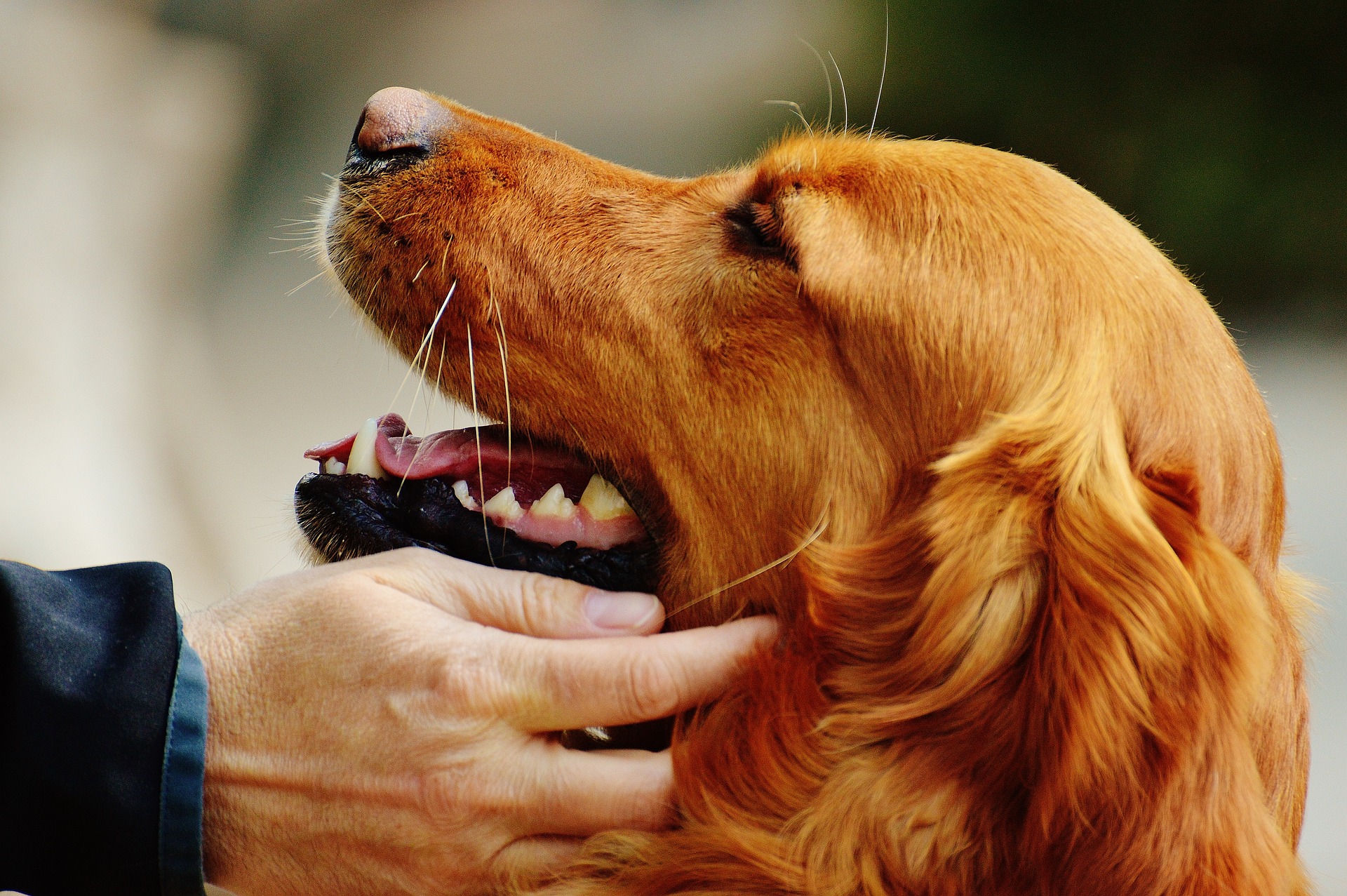
When it comes to dog training, you don’t have to settle for less than the best.
At Really Good Pets, we take into account the personal needs of you and your dog when we’re setting up a training plan.
That individual touch is what we strive for when we help families.
Message us to set up your free consultation to learn what training plan is best for you and your dog.

